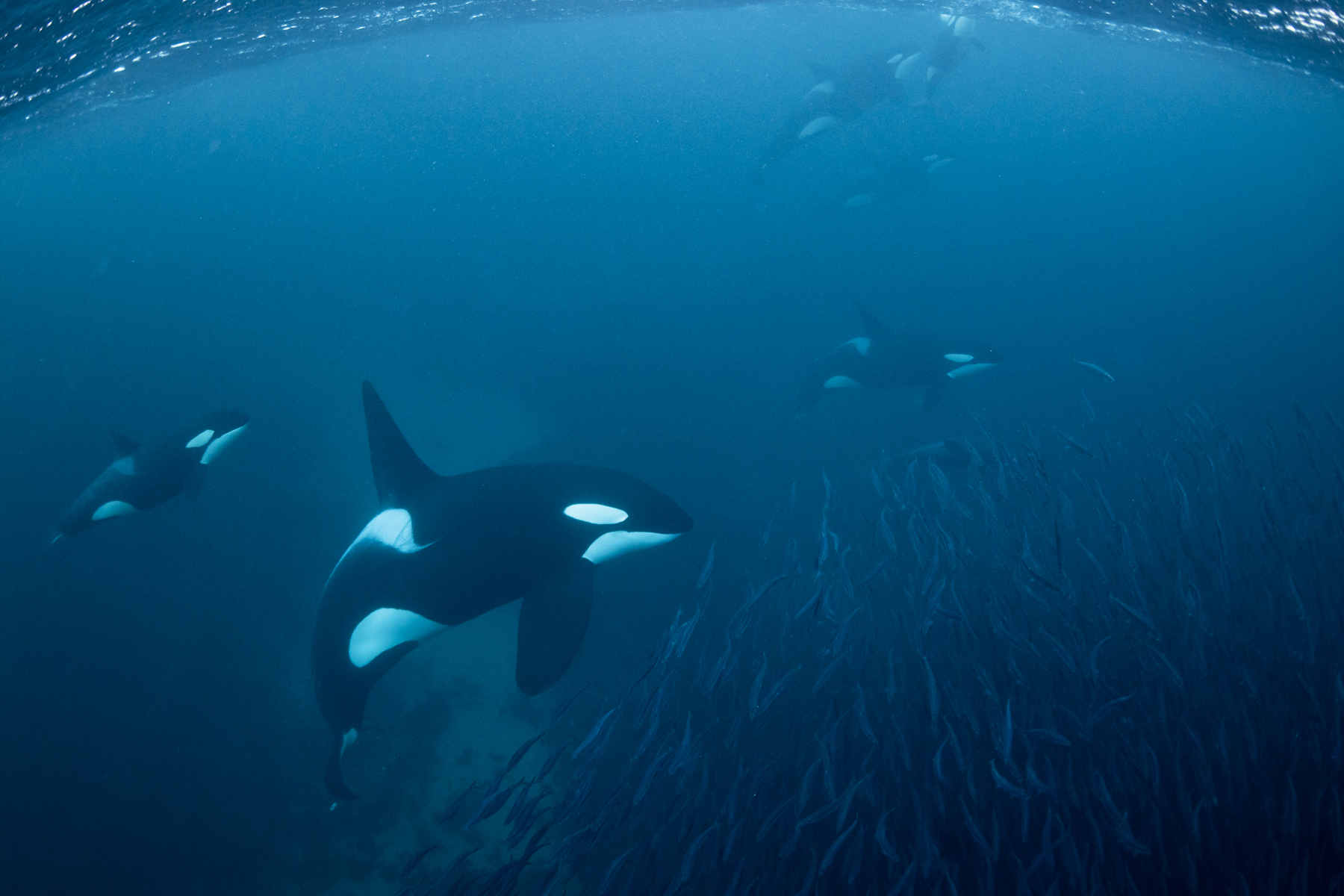Are BC's Killer Whales getting enough to eat? New funding will help UBC scientists find out
March 8, 2019

March 8, 2019

UBC researchers will use tracking and monitoring technology to determine if Southern Resident Killer Whales are able to forage for enough of their preferred prey, Chinook Salmon, to meet their nutritional needs.
The new research project was announced today by Jonathan Wilkinson, Minister of Fisheries, Oceans and the Canadian Coast Guard, as part of $2.9 million in funding under the Whale Science for Tomorrow initiative.
“The Government of Canada is committed to the protection and recovery of the Southern Resident Killer Whale, the North Atlantic Right Whale and the St. Lawrence Estuary Beluga,” said Wilkinson in making the announcement at UBC. “Our investment today in science and research will contribute to the increased protection of these extraordinary creatures. I believe that by working together, we will advance our knowledge and find more solutions to the challenges facing these whales.”
The new partnerships—which include projects at Dalhousie University and Université du Québec à Montréal—will strengthen decision-making, resource management and conservation strategies to support the recovery of the whales in Canadian waters. A joint initiative between Fisheries and Oceans Canada and the Natural Sciences and Engineering Research Council of Canada, Whale Science for Tomorrow will strengthen the ability of Canadian universities to support the Government of Canada’s whale conservation objectives, while preparing the next generation of scientists to ensure the long-term conservation and recovery of endangered whales.
“There is an urgent need to determine whether Southern Resident Killer Whales are getting enough to eat in British Columbia,” said Andrew Trites, a leading expert on marine mammals who will lead UBC’s component of the initiative.
“Our research will answer this question by tracking the movements of fish and whales and determining the effects of environmental change, fishing pressure and vessel disturbance on nutritional status. This funding will broaden the base of recovery research in Canada, accelerate the development of marine mammal scientists and ultimately increase the scientific information available to support government decision-making and conservation efforts for this endangered species.”
Many whale populations face multiple threats, such as vessel collisions, gear entanglements, a scarcity of prey, underwater noise, marine debris and other ocean contaminants.
“The Government of Canada is committed to research and using science-based evidence as the foundation for everything we do,” said Kirsty Duncan, Minister of Science and Sport.
“The researchers we are celebrating today will collect crucial data to help us better understand the threats facing our endangered marine mammals. Their work will ensure we make the right decisions to protect Canada’s species and the environment surrounding them.”
The total funding for the Whale Science for Tomorrow initiative is $2,904,364, with contributions of $2,604,364 from Fisheries and Oceans Canada and $300,000 from the Natural Sciences and Engineering Research Council of Canada. A number of programs under the $1.5 billion Oceans Protection Plan and the $167 million Whales Initiative support the conservation and recovery of these species.
We honour xwməθkwəy̓ əm (Musqueam) on whose ancestral, unceded territory UBC Vancouver is situated. UBC Science is committed to building meaningful relationships with Indigenous peoples so we can advance Reconciliation and ensure traditional ways of knowing enrich our teaching and research.
Learn more: Musqueam First Nation